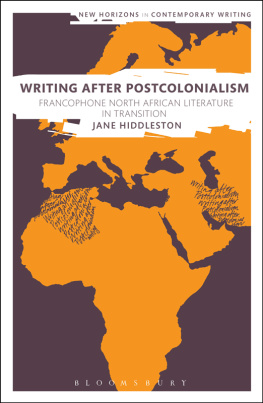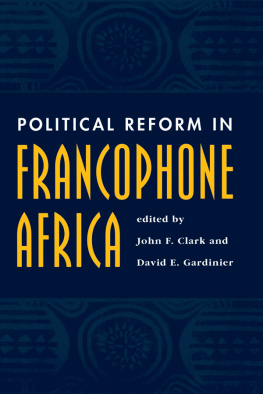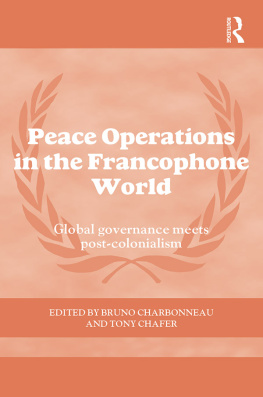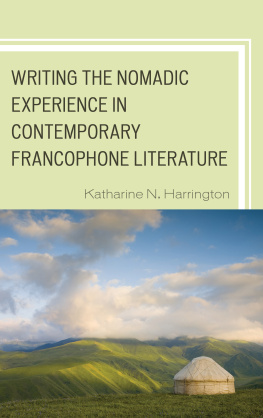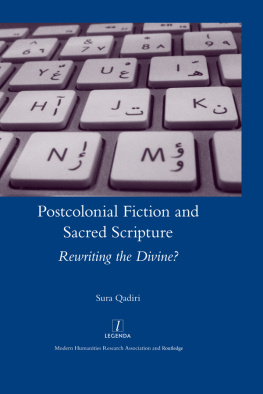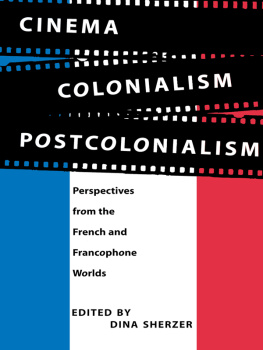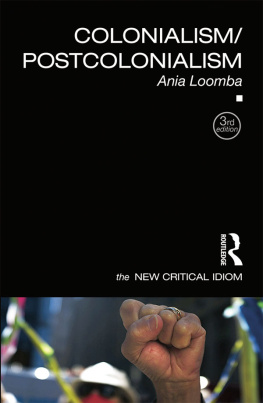Writing After Postcolonialism
New Horizons in Contemporary Writing
In the wake of unprecedented technological and social change, contemporary literature has evolved a dazzling array of new forms that traditional modes and terms of literary criticism have struggled to keep up with. New Horizons in Contemporary Writing presents cutting-edge research scholarship that provides new insights into this unique period of creative and critical transformation.
Series Editors:
Bryan Cheyette and Martin Paul Eve
Volumes in the series:
Wanderwords: Language Migration in American Literature
by Maria Lauret
Life Lines: Writing Transcultural Adoption
by John McLeod
South African Literatures Russian Soul: Narrative Forms of Global Isolation
by Jeanne-Marie Jackson
Transatlantic Fictions of 9/11 and the War on Terror
by Susana Arajo
The Politics of Jewishness in Contemporary World Literature: The Holocaust, Zionism and Colonialism
by Isabelle Hesse
Jonathan Lethem and the Galaxy of Writing
by Joseph Brooker (forthcoming)
Writing After Postcolonialism
Francophone North African
Literature in Transition
Jane Hiddleston
Bloomsbury Academic
An imprint of Bloomsbury Publishing Plc

I would like to thank the Leverhulme Trust for granting me a research fellowship for the year 201415, during which I did much of the writing of this book. I am grateful to the Rector and Fellows of Exeter College Oxford, as well as the Faculty of Medieval and Modern Languages at Oxford, for supporting this period of leave. I am grateful for the permission to reprint material from several published articles: parts of appeared in Le Silence de lcriture: Arabic and Its Absence in the Works of Assia Djebar and Lela Sebbar in Fixxion: revue critique de fixxion franaise contemporaine, 2012.
I am very grateful to all the friends and colleagues with whom I have had the opportunity to discuss the issues related to this study. The strand on Intercultural Literary Practices at the Oxford Comparative Criticism and Translation programme at TORCH, which I co-organized with Mohamed-Salah Omri, offered me many opportunities both to sharpen my thinking on North African literature and to consider notions of literarity and interculturality from a broader perspective. During my Leverhulme Research Fellowship, I participated in conferences at the Universit Oran II Mohamed Ben Ahmed, Algeria, and the Universit Cadi Ayyad, Marrakesh, and I am grateful to the organizers and participants in both events for providing such a stimulating and thought-provoking arena for discussion. Im grateful also to David Avital and Bryan Cheyette at Bloomsbury for the enthusiasm with which they greeted this project from our initial correspondence. My writing has benefited from the invaluable input from various friends who have been kind enough to read early drafts of sections for me: Colin Davis, Nick Harrison, Sura Qadiri, Patrick Crowley and Anissa Daoudi. Discussions with my highly engaging DPhil students, Edward Still, Vanessa Lee, Khalid Lyamlahy and Alexandra Reza, have also helped me to clarify my thinking in this study. Finally, innumerable thanks are due to Colin and Natasha for their love and support and for keeping my feet on the ground.
Jane Hiddleston, October 2016
After the explosion in the popularity of postcolonial studies during the 1990s and into the twenty-first century, critics have increasingly been suggesting that postcolonialism is entering its demise. Even at the disciplines peak, postcolonial critics tended to open introductions and readers with a discussion of the limited usefulness of the term. And although francophone critics have gradually become more open to the insights offered by postcolonial studies, the notion has been met with particular resistance in the French mtropole. Now, more dramatically, there are suggestions that postcolonialism is over and has been replaced by more contemporary concerns such as globalization and the new forms of transnationalism. In 2007, for example, PMLA published an Editors Column provocatively entitled The End of Postcolonial Theory in which critics debated the misconceptions associated with the use of the term, and although the conclusion was not that it should be incontrovertibly jettisoned, there was certainly a sense that the discipline needed to move on with the times.
This book sets out to explore what happened to francophone postcolonial literature in North Africa in the generations after those of the struggle for independence. Far from dismissing the significance of all connection with the colonial past, however, this study will analyse how francophone postcolonial writing has evolved since the 1980s and will explore the new concerns of writers and intellectuals both shaped by and at a distance from the struggles of the generation before. The after of Writing After Postcolonialism, therefore, is not intended to denote the completion of a finite period that we might associate with postcoloniality, but rather a continuation and a development. How do francophone writers of the late twentieth and early twenty-first centuries both build on and alter the postcolonial thinking of their forebears? How does the legacy of French colonialism in the Maghreb trigger or become imbricated in new struggles, and how do these impact on literary culture? More broadly, what role do writers conceive for their craft several decades after the revolutionary moment, and has literature been accorded the same contestatory force more recently as it was by intellectuals of the 1950s such as Frantz Fanon or Kateb Yacine?
Writing After Postcolonialism does not, then, concur with pronouncements that postcolonialism is no longer a useful paradigm for understanding contemporary global politics. The book does suggest, however, that postcolonialism now means something rather different from what it meant when the term first became popular, and the Maghreb is taken as a compelling example of a region where the national regimes that have evolved in the wake of the ravages committed by the French colonial power continue to face difficulties both created by and superseding the colonial past. Tensions within and towards the state, moreover, have had a specific impact on conceptions of intellectual dissent and, more specifically, of the role of literary writing in society and culture at large, and the writers chosen for discussion here all reflect on recent and contemporary political history through an investigation of literatures place both in the modern nation and in the wider world. Shaped by and reflective of their time, the texts at the same time step outside contemporary society in order to rethink their engagement in it and to reassess their ability to challenge orthodoxies and contribute to the creation of alternative local cultures. As Algeria, Morocco and Tunisia in their different ways have faced ongoing social dissatisfaction and political unrest, writers question how their work can or indeed cannot contribute to resistance movements and militate for change. And while national culture remains a source of contestation in North Africa, many writers question what perhaps oblique or limited role their own cultural activity can have in promoting creative, intellectual and political freedom within the postcolonial nation.
It is in Algeria that the late twentieth and early twenty-first centuries have brought the most violent forms of unrest, and it is also Algerian literary writers who have been the most prolific and vocal both in speaking out and in questioning the role of their work in responding to the political troubles of their time. As historian James Le Sueur describes, the early 1980s saw an enormous change in Algerias fortunes, indeed one of the biggest shifts in postcolonial history. The Arabization policy pursued by Boumedienne in the wake of independence was also starting to reveal its flaws, as the privileging of Arabic in the education system was not matched by a comparable commitment to it in the administration, with the result that there was large-scale unemployment among young people emerging from Arabic schools. Moreover, the economy was struggling, and after the oil markets crashed in 1986, it took a steep downward turn. Algerian society at the same time became increasingly fractured. As dissatisfaction with the authoritarianism and uniform vision of the FLN grew, protests gathered force across various sectors of the population. The Berber question became pressing after 1980, when a decision by the authorities to cancel a course on Berber poetry at Tizi Ouzou University led to demonstrations and protest across the region of Kabylia. The movement has resurfaced in successive waves since this event, in a call for a more pluralized, liberal and secular Algeria that would challenge the oppressive professed unity of the post-independence regime. The unrest that gathered through the 1980s, however, led at the same time to the growth of an opposing force, in the form of radical Islamism, which in turn presented itself as a major challenge to the Algerian nation state.
Next page
